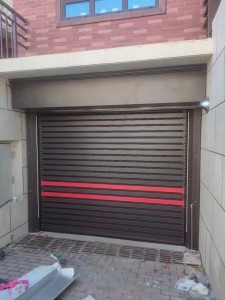do garage doors use a lot of electricity
Garage doors are not only functional, they also help to enhance the overall appeal of our homes. However, many homeowners find themselves concerned about the power consumption of these large mechanical devices. In this blog post, we’ll debunk myths about garage door energy efficiency. We’ll explore factors that affect electricity consumption, discuss how to reduce energy use, and offer tips for choosing the most energy-efficient garage door for your home.
Know the factors
To determine the electricity consumption of your garage door, several factors must be considered. First, the type of garage door opener plays a big role. Traditional chain-driven corkscrews tend to use more energy than newer models with belt or screw drives. Insulation can also impact energy use, as improperly insulated garage doors can lead to heat loss or gain, resulting in increased energy use. Finally, frequency of use and maintenance practices can affect overall electricity usage.
Reduce energy consumption
Fortunately, there are a variety of ways to reduce the energy consumption of your garage door. Regular maintenance such as lubrication, checking for loose parts, and proper alignment of the tracks can optimize opener efficiency. Installing weatherstripping and insulation can provide better temperature control and reduce the need for additional heating or cooling. Additionally, modern garage door openers are equipped with energy-saving features such as LED lights and motion sensors that automatically turn off lights after a period of inactivity.
Selecting an Energy Efficient Garage Door
When choosing a new garage door, it’s critical to consider energy efficiency. Look for garage doors marked with energy ratings, such as R-value and U-factor. The R-value indicates how well the door is insulating, with the higher the value, the better the insulation. The U-Factor measures the rate of heat transfer, with lower values indicating better insulation. Choosing a garage door made of energy-efficient materials like steel or wood composite can also help reduce electricity consumption.
garage doors don’t consume a lot of electricity compared to other appliances in our homes. Understanding the factors that affect energy consumption and implementing energy-saving measures can help minimize its impact on your electricity bill. By choosing an energy-efficient garage door and performing regular maintenance, you can rest assured knowing that you are reducing your environmental footprint and energy costs.
